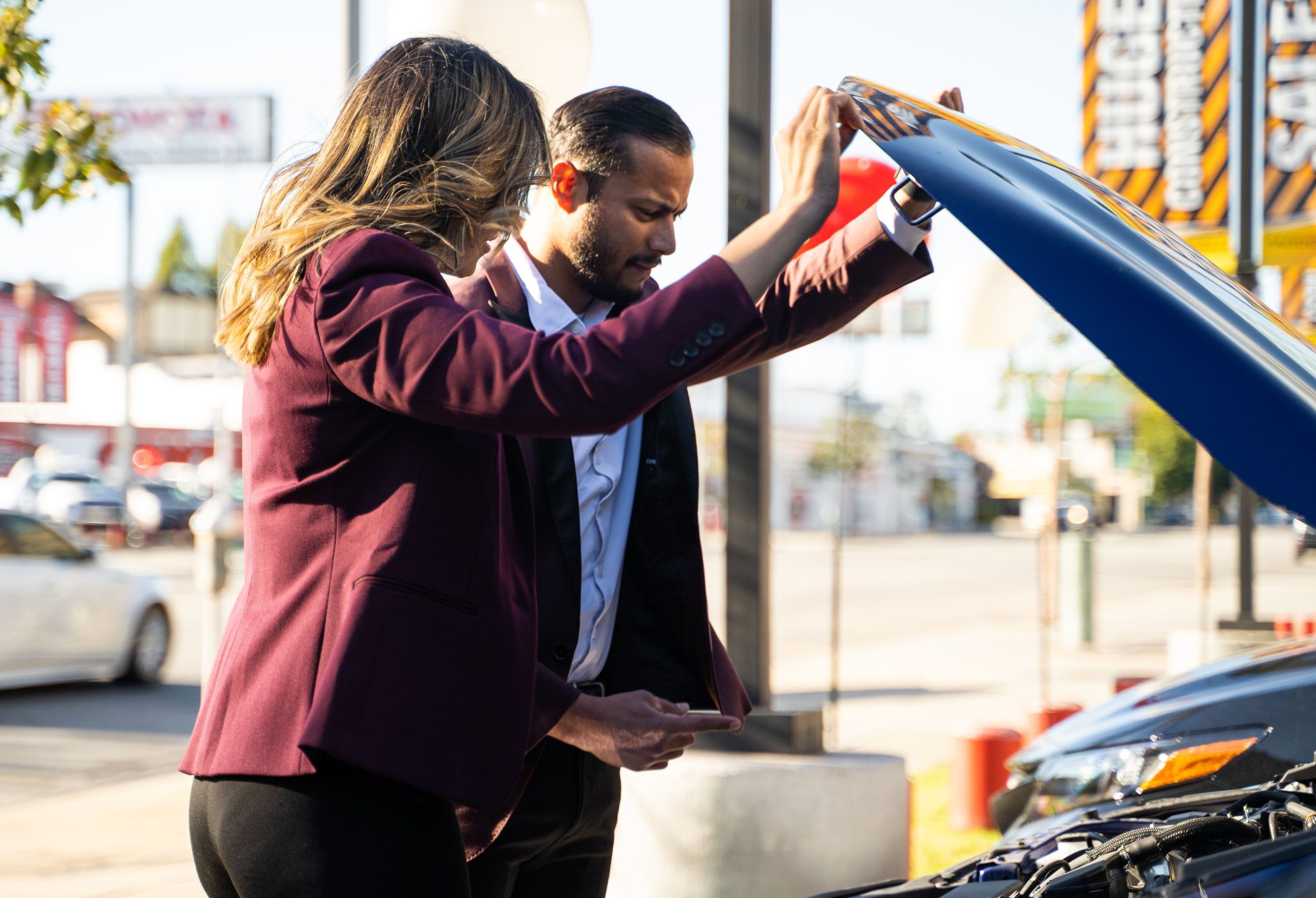Auto financing is a critical step for many when buying a car. Thievery, without a credit history, this process can seem daunting.
This blog aims to simplify the concept of auto financing for those with no credit, providing practical advice and options to make securing a vehicle loan more accessible.
Whether you’re a first-time buyer or someone looking to understand your options, this guide is here to help you through auto financing without needing an existing credit history.

Credit and Auto Financing
Credit is pivotal in auto financing, reflecting your financial trustworthiness to lenders. Without a credit history, securing favorable loan terms can pose challenges or lead to higher rates.
What is Credit?
Credit refers to your financial reputation based on how responsibly you manage borrowed money. It’s like a report card showing lenders how likely you are to repay debts.
Why Credit Matters in Auto Financing
When you apply for an auto loan, lenders review your credit history to determine the risk of lending your money. A good credit score signals trustworthiness, making it easier to secure favorable loan terms.
Implications of No Credit History
Without a credit history, lenders lack information to assess your reliability. This can make getting approved for an auto loan challenging or result in higher interest rates.
Challenges of No Credit Auto Financing
Securing auto financing without a credit history can be a tough process. Here, we outline your main challenges and offer straightforward guidance to help you understand what’s ahead.
Understanding Lenders’ Hesitation
Lenders cannot assess your reliability in repaying loans without a credit history. This absence of financial background makes you a riskier bet for lenders, which can lead to higher interest rates or outright denial.
Higher Interest Rates and Fees
One of the most common hurdles is the likelihood of facing higher interest rates. Lenders often compensate for the increased risk of loaning money to someone with no credit history by charging more interest and fees, making your loan more expensive overall.
The Need for a Cosigner
Many times, securing a loan without a credit history requires a co-signer. A cosigner with a good credit score can improve your chances of approval. However, finding someone willing to take on the financial responsibility if you fail to make payments can be difficult.
Limited Financing Options
With no credit, your options for lenders and loan products are limited. Traditional banks may be less likely to offer you a loan, pushing you towards alternative lenders or in-house dealership financing, which might come with less favorable terms.
Large Down Payment Requirements
Another challenge is the potential need for a large down payment. Lenders may require this to reduce their risk, meaning you’ll need significant cash to secure the financing.
Preparing for Auto Financing Without Credit
Getting auto financing without credit? Learn how to prepare effectively. From researching lenders to saving for a down payment, these steps can increase your chances of approval.
Start with Research
Understanding your options for auto financing without a credit history is essential. Begin by researching lenders who offer financing to individuals with no credit. Focus on banks, credit unions, and online lenders with programs for first-time buyers or those without a credit history.
Income and Employment
Lenders will look at your income and job stability instead of your credit score. Make sure you have proof of a steady income and long-term employment. This reassurance helps lenders feel confident in your ability to repay the loan.
Save for a Down Payment
A significant down payment can improve your chances of securing an auto loan. It reduces the lender’s risk and can also lower your monthly payments. Aim to save as much as possible before applying for financing.
Essential Documents
Gather all necessary documents before applying for a loan. This typically includes proof of income (such as pay stubs), employment verification, and proof of residence. Having these documents prepared can expedite the application process.
Consider a Cosigner
Find a cosigner with good credit to sign the loan with you if possible. A cosigner agrees to take on the responsibility of the loan if you cannot make the payments. This can significantly increase your chances of approval.
Compare Offers
Finally, financing offers from different lenders should be compared to find the best deal. Look at interest rates, loan terms, and any additional fees. Taking the time to compare offers can save you money in the long run.
Options for Auto Financing Without Credit
Navigating auto financing without credit can be daunting. Learn about various options available, from traditional lenders to online platforms, to secure financing tailored to your needs.
Traditional Lenders
Traditional lenders like banks or credit unions might still consider financing options for those without a credit history. However, be prepared for stringent requirements and the likely need for a cosigner to secure the loan.
Dealership Financing
Many dealerships offer in-house financing options, especially for buyers with no credit. While convenient, these options often have higher interest rates and stricter terms. Ensure you understand all terms and conditions before committing.
Online Lenders
Online lending platforms cater to individuals with no credit or bad credit. They may offer more flexible terms and faster approval processes than traditional lenders. However, be cautious of high-interest rates and predatory lending practices.
Buy Here, Pay Here Dealerships
These dealerships finance the purchase directly, eliminating needing a third-party lender. While they may be more lenient on credit history, they often come with higher interest rates and less favorable terms. Be sure to thoroughly understand the terms and conditions before agreeing to financing from a Buy Here, Pay Here dealership.
Taking the Next Step with Maxdrive Auto Sales
In conclusion, securing auto financing with no credit history is more than possible; it’s a realistic goal that requires the right approach. By preparing adequately, considering various financing options, and possibly involving a cosigner, you can find a suitable path to owning a car.
If you’re ready to take the next step toward auto financing and car ownership, Maxdrive Auto Sales is here to assist you. Our team is committed to providing supportive guidance and straightforward financing options, regardless of your credit history. Visit Maxdrive Auto Sales today and let us help you drive off in your new car.
Purchasing a new or used vehicle can be an exciting but daunting task, especially when it comes to financing. Many buyers opt for auto loans to spread the cost of their purchase over time. However, before you start looking for your dream car, it’s essential to consider auto loan pre-approval.
In this comprehensive guide, we’ll explore everything you need to know about auto loan pre-approval, including its benefits, process, eligibility criteria, and tips for success.

What is Auto Loan Pre-Approval?
Auto loan pre-approval involves a lender assessing your creditworthiness and establishing the highest loan amount you qualify for before you commence your car search. Essentially, it provides a clear picture of your purchasing power, allowing you to shop confidently and negotiate better terms with dealerships.
Benefits of Auto Loan Pre-Approval
Know Your Budget
Auto loan pre-approval helps you set a practical budget for your vehicle acquisition by determining the highest loan amount attainable. This prevents you from falling in love with a car that is beyond your financial means.
Negotiating Power
Armed with a pre-approved loan, you have greater negotiating power when dealing with dealerships. You can focus on negotiating the price of the vehicle rather than haggling over financing terms, potentially saving you money in the long run.
Streamlined Shopping
Pre-approval is an essential step that can significantly expedite the car-buying process. By obtaining pre-approval, you can eliminate the uncertainty of securing financing and focus solely on finding the perfect vehicle. This saves you time and empowers you with confidence when negotiating with sellers.
Rate Lock
In some cases, lenders may offer rate locks on pre-approved loans, protecting you from potential interest rate hikes while you shop for your car. This can be particularly beneficial if interest rates are expected to rise soon.
Better Loan Term
By securing pre-approval, you show lenders that you are a qualified borrower and increase your chances of getting more favorable loan terms. With pre-approval, you can enjoy lower interest rates and longer repayment periods, significantly impacting your financial situation in the long run. By taking this proactive step, you are setting yourself up for success and ensuring that you make informed decisions when it comes to borrowing money.
How to Get Auto Loan Pre-Approval
Check Your Credit Score
Your credit score significantly determines your eligibility for auto loan pre-approval and the terms you qualify for. Before applying, review your credit report and take steps to improve your credit score if necessary.
Research Lenders
When seeking the ideal lender to meet your financial requirements, you have various choices at your disposal. Conventional banks and credit unions offer reliability and personalized service, whereas online lenders offer convenience and expedited approval procedures.
Additionally, you can consider dealership financing options if you’re purchasing a vehicle. Compare their interest rates, terms, and requirements to find the best fit for your financial situation.
Gather Documentation
To make the pre-approval process smoother, gathering all the necessary documents in advance is important. Lenders typically ask for proof of income, employment verification, and personal identification. Having these documents ready will help streamline the application process and avoid any delays or complications.
Submit an Application
After selecting a lender that suits your needs, it’s time to take the next step and submit your loan application. Whether you choose to do it online, over the phone, or in person, provide all the necessary information accurately and completely. This will help expedite the review process and increase your chances of getting approved for the loan.
Review Loan Offers
Once your application has been thoroughly reviewed, the lender will promptly furnish you with a pre-approval decision. They will inform you of their decision and provide comprehensive details regarding the loan offer. This includes crucial information such as the maximum loan amount, interest rate, and repayment terms, ensuring transparency throughout the process.
Shop for Your Car
Once you have received your pre-approval, it’s time to embark on the exhilarating journey of finding your dream car. As you begin exploring various makes and models, remember to stay mindful of your budget and loan terms. This will ensure you make a well-informed decision and secure the best possible deal when negotiating with dealerships.
Finalize the Loan
After selecting your desired vehicle, it’s time to wrap up the loan process with your lender. Be prepared to furnish any extra documents they may require, go through the necessary paperwork diligently, and make arrangements for payment to finalize the purchase.
Eligibility Criteria for Auto Loan Pre-Approval
While specific eligibility criteria may vary depending on the lender, there are several common factors that lenders consider when evaluating auto loan pre-approval applications:
Credit History
Lenders typically look for a solid credit history with a demonstrated track record of responsible borrowing and timely payments. A higher credit score increases your chances of pre-approval and may qualify you for better loan terms.
Income and Employment
Lenders analyze the stability of your employment and income stability to confirm whether you can repay the loan. Consistent employment and an adequate income are pivotal in determining pre-approval qualification.
Debt-to-Income Ratio
Another vital aspect considered in the pre-approval process is your debt-to-income ratio, which gauges your monthly debt commitments in relation to your income. Lenders favor applicants with a low debt-to-income ratio because it shows you are less likely to default.
Down Payment
While not always required for pre-approval, a larger down payment can improve your chances of securing a loan and may result in more favorable loan terms. Aim to save up for a down payment of at least 10-20% of the vehicle’s purchase price.
Loan Amount and Term
When evaluating your pre-approval application, lenders consider the loan amount and term you’re requesting. Be realistic about the amount you can afford to borrow and the repayment terms that fit within your budget.
Wrapping Up
Auto loan pre-approval is a valuable tool for prospective car buyers, offering numerous benefits such as knowing your budget, negotiating power, streamlined shopping, rate locks, and better loan terms.
So, whether you’re in the market for a new or used vehicle, auto loan pre-approval can help you make informed decisions and achieve your automotive goals. For more information about various pre-approval options and general car-buying tips, visit Maxdrive Auto Sales today!
The Buy-Here-Pay-Here (BHPH) model stands out as a unique and enticing route for savvy buyers. The primary advantage of the BHPH model is its flexibility regarding credit history. Unlike traditional lenders who may have stringent credit requirements, BHPH dealerships often cater to individuals with less-than-perfect credit. This inclusivity allows buyers with varying credit backgrounds to secure financing for a reliable used car.

Streamlined Approval Process
BHPH dealerships typically handle the financing in-house, leading to a more streamlined approval process. Unlike traditional lenders where the approval decision might take days or weeks, BHPH dealerships often provide on-the-spot decisions, allowing buyers to drive away with their chosen vehicle more quickly.
No Dependency on External Lenders
The BHPH model eliminates the need for external lenders, providing the dealership with more control over the financing process. This autonomy can result in a more stable and consistent financing experience for buyers, as the dealership is less susceptible to the fluctuations and policies of external financial institutions.
Opportunity to Rebuild Credit
Timely payments on a BHPH auto loan are often reported to credit bureaus. This presents an opportunity for buyers to demonstrate responsible financial behavior and improve their credit standing over time. For those looking to rebuild their credit, the BHPH model can be a stepping stone to financial recovery.
Local Economic Impact
BHPH dealerships are often local, community-focused businesses. By choosing a BHPH option, buyers contribute to the local economy, supporting small businesses that, in turn, reinvest in the community. This community-oriented approach can create a sense of shared responsibility and support.
Potential for Lower Total Ownership Costs
BHPH dealerships are vested in selling reliable vehicles to minimize the risk of defaults. Consequently, buyers may find that the overall maintenance costs of their purchased vehicles are lower than expected. This can result in a more cost-effective ownership experience.
Direct Relationship with the Dealer
With BHPH financing, buyers work directly with the dealership throughout the purchasing and financing. This direct relationship can lead to better communication, a deeper understanding of the buyer’s needs, and a more personalized overall experience.
Quick Access to Transportation
The streamlined approval process and credit flexibility of the BHPH model mean that buyers can often secure financing and acquire a vehicle more quickly than through traditional financing options. This quick access to transportation is particularly beneficial for individuals who need reliable and immediate transportation.
Flexible Payment Methods
BHPH dealerships often provide flexibility in payment methods. Buyers may have the option to make payments in person, online, or even via mobile apps. This convenience caters to a diverse range of preferences and lifestyles, ensuring that buyers can manage their payments in a way that suits them best.
Accessible Financing for All Credit Types
One of the most significant advantages of the Buy-Here-Pay-Here model is its inclusivity. Traditional lenders may scrutinize credit histories, making it challenging for individuals with less-than-perfect credit to secure financing. BHPH dealerships, on the other hand, often offer in-house financing, welcoming buyers with various credit backgrounds.
Streamlined Approval Process
Buy-Here-Pay-Here dealerships streamline the financing approval process. With in-house financing, decisions are typically made on-site, allowing for a quicker and more straightforward approval process. This speed can be a game-changer, especially for buyers in need of a reliable vehicle without the delays associated with traditional financing.
Customized Payment Plans
BHPH dealerships understand that one size doesn’t fit all when it comes to payment plans. These dealerships often provide more flexibility in crafting payment schedules that align with the buyer’s financial situation. Customized plans may include weekly or bi-weekly payments, catering to diverse budgetary needs.
Opportunity to Rebuild Credit
For those on a journey to rebuild their credit, Buy-Here-Pay-Here financing can be a stepping stone. Timely payments on a BHPH auto loan is often reported to credit bureaus, offering buyers a chance to demonstrate responsible financial behavior and improve their credit standing over time.
No Middleman, Direct Relationship
Buy-Here-Pay-Here eliminates the need for a middleman in the financing process. Buyers work directly with the dealership, fostering a more personalized and direct relationship. This can result in better communication and a deeper understanding of the buyer’s individual needs and circumstances.
Factors to Consider with the BHPH Model
Not all Buy-Here-Pay-Here dealerships are created equal. Research potential dealers thoroughly, checking reviews and testimonials from previous customers. A reputable BHPH dealership should have a track record of fair practices, transparent terms, and excellent customer service. Before signing on the dotted line, make sure to understand the terms and conditions of the BHPH financing agreement. Pay attention to interest rates, fees, and any potential penalties for late payments. Clarify any uncertainties with the dealership to avoid surprises down the road.
While BHPH options offer flexibility, it’s crucial to budget wisely. Assess your monthly income and expenses to determine a payment plan that aligns with your financial capacity. Avoid biting off more than you can chew to ensure a stress-free and sustainable financing experience.
Before finalizing the deal, conduct a comprehensive inspection of the used car. Ensure it meets your standards for reliability and safety. While BHPH dealerships often recondition their vehicles, it’s essential to be proactive in assessing the condition of the car you’re considering.
Cultivate a positive relationship with the BHPH dealership. Clear communication and a good rapport can go a long way in addressing any concerns or issues that may arise during the financing period. A collaborative approach benefits both parties involved.
Choosing the Buy-Here-Pay-Here option when buying a used car from a dealership can be a strategic move for a wide range of buyers. From credit flexibility to a more direct relationship with the dealer, the benefits are clear. However, success lies in thorough research, understanding the terms, and budgeting wisely. By embracing the advantages of Buy-Here-Pay-Here, you’re not just acquiring a car but setting off on a financially sensible journey toward reliable transportation. To find out more about the Buy-Here-Pay-Here option and some great vehicle options you can visit Maxdrive Auto Sales.
Are you planning to buy a car on a reasonable budget? Used car finance may fit your demands. Unlike those days when used cars were considered a red flag, the pre-owned vehicle market is booming now. The rising inflation has changed the buyer’s perspective and opened new doors of investments for vehicle buyers across the U.S. If it is your first time considering used cars, we can relate to the tons of concerns you might have. To help you make an informed decision, let us tell you why used car finance can be a better option for a budget-conscious buyer.

Buying a Used Car to Meet Your Budget Goals
You might have heard a lot of vehicle owners saying that used car purchases are bad investments. What if we tell you that is only half the truth? Used car finance has many pros that a lot of buyers fail to analyze. Before you choke your bank account to save up for a new car, understanding the positive side of pre-owned vehicles can save you time and money.
Lower Purchase Price
The biggest edge of buying used cars is their lower price tag. If you need a car for commuting or other purposes, you do not have to wait until you can afford a new one. The market is full of many vehicles in great condition. All you need is some research and tactics to make a wise choice. Yes, it is true that used cars can be risky in terms of mechanical faults and maintenance needs. However, options like vehicle inspection can help you pick a car with no such problems.
When you buy a car for a lower price, you can spare some money for upfront repairs. This way, you can get your car ready for daily use without burdening your pocket. Plus, many used car dealerships offer special deals to customers, giving them the financial edge, they need.
We recommend doing your market research first. It can help you understand the pros and cons of used car finance for an informed decision.
Lower Insurance Costs
Buying a new car means paying high insurance premiums. It is an added financial burden on most buyers. On the contrary, buying used cars can save you from high insurance costs. Insurance premiums typically apply in proportion to the newness of a vehicle. As the market demand and value depreciate, the premiums come down to reasonable levels.
Opting for used cars can save you from this hassle. You can save the additional amounts for other expenses based on your preferences. Moreover, you can check insurance deals offered by various vendors in your area to make a wise choice.
A good rule is to discuss narrowing your dealership and insurance options with a car expert in your area. Experienced buyers can guide you on the dos and don’ts of used car finance better than anyone else.
Slower Value Depreciation
Value depreciation is a major point of concern for budget-conscious car buyers. As cars become older, their value depreciates in the market due to reduced demand. New car buyers take the biggest bump in this regard. As you buy a new vehicle, its initial value depreciates quickly. On the other hand, used cars are usually past that point.
Their value depreciates slowly as compared to new vehicles. If you plan to preserve your investments, opting for used car finance can be a better option. It is worth noting that the market depreciation rate and speed vary for each vehicle.
Typically, hot-selling cars retain their value for longer periods. Less popular models have a faster depreciation rate, making them an unsafe investment for budget-conscious buyers.
Lower Maintenance Costs
New cars can be quite costly to maintain. They have expensive parts and repair costs as compared to pre-owned cars. As a model gets older, its parts and services become cheaper. If you have budget constraints, picking a used vehicle can be easier on your pocket. Another factor that makes used cars a more suitable option for budget-conscious buyers is warranty periods.
New cars come with expensive warranties, making them financially burdening for some buyers. Used vehicles typically do not have such warranties. You can expect a cost-effective experience if you choose a thoroughly inspected and tested vehicle.
We recommend checking your nearby used car dealerships to learn more about your options. Take your time in the research phase and choose a car that fits your requirements.
Pro Tips for Used Car Finance
If you want to have a smooth car-buying experience, the following pro tips may come in handy during your search.
Do Not Spend All Your Money on Buying a Car
Used car buyers often spend all their money purchasing a vehicle. A safer option is to spare some money for upfront maintenance. This way, you can avoid the financial impact while getting your vehicle ready for daily use.
Compare Used Car Finance Deals
Some buyers skip the hassle of comparing different auto finance plans. They stick to the first option they find when buying a used car. A good rule is to compare different finance plans in your area and make negotiations. Only settle for those vendors that offer the lowest rates.
Never Skip on Vehicle Inspection
Some car dealers use verbal tactics to lure buyers into making rushed decisions. As a first-time buyer, you might want to cross-check every detail shared by the dealership staff. Get your vehicle inspected before locking your purchase deal to rule out the possibility of scams.
Final Thoughts
The above information highlights how used car finance can help budget-conscious buyers. We recommend going through all the factors before you proceed with the purchase process. If you need a reliable used car dealer with plenty of vehicle options to choose from, Maxdrive Auto Sales awaits your visit. Feel free to visit the official website and explore your car finance options. You can also visit the dealership location to check the recent car collection.
Do you want to buy a used car? Wondering whether to shop at a dealership or buy a used car from a private owner? Then wait! This post is a good read for you to understand the key differences between a used car dealer and a private owner. Knowing how they work and assist you through the process will help you determine which option is more feasible.

Take a look:
1. Comprehensive Knowledge and Assistance
Used car dealers are well-versed in their trade. They possess an in-depth understanding of the cars they have in stock, and they’re equipped to offer you valuable insights regarding these vehicles, including their history and performance.
This knowledge is particularly helpful because private owners may not always have the same level of information, leaving you with unanswered questions and ambiguity. With used car dealers, you can expect guidance throughout the entire car-buying process, ensuring that you make an informed decision. Their expertise is a valuable resource, guarding you against making costly errors in your purchase.
2. Reliable and Responsible Transactions
What sets used car dealers apart is their commitment to accountability. They often take the extra step of reconditioning and servicing the vehicles they have for sale, making sure they are in optimal condition. This diligence reduces the likelihood of hidden problems or unexpected repairs in the future.
On the other hand, private sellers, while having good intentions, might not always be aware of or forthcoming about underlying issues with their cars. Therefore, choosing a used car dealer ensures that the car you purchase is in the best possible shape, thereby promoting a sense of security and trust in your investment.
3. Large Fleet- Variety and Choice
Car dealerships offer a large inventory of vehicles, giving you the opportunity to browse and test-drive multiple options in one location. This convenience allows you to compare various makes and models, ensuring you find the perfect car that suits your needs and preferences.
Whether you’re looking for a reliable family sedan, a rugged SUV, or a sporty convertible, dealerships have an extensive variety of vehicles to choose from.
Additionally, used car dealers often have access to certified pre-owned programs, providing you with vehicles that meet manufacturer standards for quality and reliability. These certified vehicles have undergone rigorous inspections and come with extended warranties, giving you peace of mind and an extra layer of protection.
However, you may not have these benefits when you shop for a used car with a private owner. A private owner will be adamant to sell their vehicle. Hence, there’s no inventory or options.
4. Financing and Trade-in Options
One significant advantage of buying from a used car dealer is the availability of financing options. Dealerships have established relationships with multiple banks and financial institutions, making it easier for you to secure a loan at a competitive interest rate. This can be especially beneficial if you don’t have the cash to purchase a car outright, allowing you to spread the cost over time through affordable monthly payments.
Furthermore, many dealerships offer trade-in options, making it convenient to part ways with your current vehicle when you decide to upgrade. This process is usually straightforward, and dealers can provide you with fair market value for your trade-in, which can be applied towards your new purchase.
5. Peace of Mind and Warranties
Used car dealers commonly offer warranties with the vehicles they sell, providing an extra shield of protection that brings peace of mind should any unforeseen issues emerge. In contrast, private owners may not extend such warranties, making dealerships a more dependable choice when it comes to ensuring the cars they offer are in optimal working order.
This added assurance becomes particularly crucial when you’re in the market for a used car to serve as your daily commuter or for your family. You can have confidence in the fact that used car dealers are fully committed to standing behind the cars they sell and address any concerns or issues that may surface after your purchase.”
6. Regulatory Compliance and Legal Protection
Used car dealerships are subject to strict regulations and legal requirements, which means you have a level of protection when dealing with them. These regulations vary from place to place but generally ensure that dealers operate ethically and transparently. This can be particularly reassuring when compared to private sellers, where the level of accountability may be less defined.
Dealerships often provide vehicle history reports, ensuring you’re well-informed about the car’s background, including accidents and maintenance records. This transparency reduces the chances of buying a lemon or a car with a hidden history.
7. Support and After-Sales Service
You can’t expect this from a private seller. However, when you buy a car from a used car dealer, you’re not just making a transaction; you’re establishing a relationship. Dealerships value customer satisfaction and are motivated to provide excellent service to build trust and repeat business. This commitment to their customers means you can rely on their support even after you drive your new vehicle off the lot.
If you encounter any issues or have questions about your purchase, used car dealers are there to assist you. They often have dedicated service centers and knowledgeable staff who can address maintenance and repair needs, ensuring your car remains in top condition.
Conclusion
In a nutshell, used car dealers go beyond mere salesmanship; they become your trusted partners in the quest for a reliable, high-quality pre-owned vehicle. Their profound knowledge, commitment to responsibility, a diverse range of choices, financing alternatives, warranty offerings, and after-sales service distinguish them from private sellers. Hence, they are a better option. So, if you want to buy a used car, visit our dealership. We offer a large fleet of vehicles of all makes and models in mint condition and affordable prices. View our inventory now.
Buying a car is a significant investment that comes with a multitude of choices and considerations. Among the most crucial decisions is whether to opt for a brand new car or explore the offerings at a used car dealership. While new cars undoubtedly have their appeal, there are numerous compelling reasons to consider purchasing your next vehicle from a used car dealership. In this guide, we will delve into the advantages of buying a used car. Read on to find out!

1. Cost-Effectiveness
The most apparent benefit of purchasing a used car is the cost-effectiveness of the initial purchase. New cars come with a substantial price tag. However, as soon as you drive a new car off the dealership lot, it begins to depreciate rapidly. In fact, it’s not uncommon for a new car to lose 20-30% of its value in the first year alone.
By opting for a used car from a dealership, you avoid this steep depreciation curve. Used cars have already experienced this initial drop in value, which means you can get a vehicle that’s substantially more affordable than its brand-new counterpart. This lower purchase price allows you to allocate your budget more efficiently, whether it’s for other essential expenses or saving for the future.
2. Variety and Selection
Used car dealerships offer an extensive range of vehicles, making it easier to find the perfect car for your needs. Whether you’re looking for a reliable family sedan, a versatile SUV, a rugged pickup truck, or an environmentally friendly hybrid, you’re likely to find multiple options in various makes and models at a used car dealership.
This wide selection allows you to compare different vehicles, explore various features, and test drive multiple options to ensure that the car you choose aligns perfectly with your preferences and requirements.
3. Vehicle History Reports
Transparency and peace of mind are paramount when buying a used car, and reputable dealerships understand this. They often provide vehicle history reports for their cars, offering a comprehensive overview of the vehicle’s past. These reports include details about accidents, service records, and ownership history.
Access to such information empowers you to make an informed decision, ensuring you’re fully aware of the car’s condition and background. This level of transparency is a significant advantage compared to private sellers who may not provide such detailed records.
4. Certified Pre-Owned (CPO) Programs
Certified Pre-Owned (CPO) programs offered by many used car dealerships are designed to provide additional peace of mind. These programs involve rigorous inspections, servicing, and certification processes that adhere to strict manufacturer criteria.
When you buy a CPO vehicle from a used car dealership, you’re essentially getting a car that’s been approved by experts. CPO cars often come with extended warranties and additional benefits, ensuring you’re protected against unexpected issues.
5. Lower Insurance Costs
Insurance is a recurring expense associated with car ownership, and it can be a substantial part of your overall budget. Fortunately, choosing a used car from a dealership can lead to lower insurance premiums. Insurance premiums are usually determined by the vehicle’s assessed value, as per standard practice by insurance companies. Since used cars have a lower market value than new ones, they are generally less expensive to insure.
Lower insurance premiums not only reduce your monthly expenses but also contribute to long-term savings. Over the course of several years, the difference in insurance costs between a new and a used car can be significant.
6. Easier Financing
Used car dealerships often have well-established relationships with financial institutions. This makes securing financing more accessible and convenient for buyers. Dealership finance experts can guide you through the financing process, helping you find a loan that aligns with your budget and credit profile.
Additionally, some used car dealerships offer in-house financing options, providing flexibility for buyers with various financial situations.
7. Thorough Inspections and Maintenance
Reputable used car dealerships prioritize the quality and reliability of their vehicles. Before a used car is listed for sale, it undergoes a rigorous inspection and maintenance process. This ensures that the vehicle is in good working condition and meets safety standards.
By choosing a car from a dealership, you can trust that the vehicle has been thoroughly vetted and serviced, reducing the risk of unexpected breakdowns and repair costs.
8. Professional Advice
The knowledgeable staff at used car dealerships can be a valuable resource during your car-buying journey. They have in-depth knowledge of their inventory and can provide insights into the features, benefits, and performance of different models.
Whether you have specific questions or need guidance in selecting a vehicle that suits your needs, the professionals at a dealership can offer personalized advice to help you make the right choice.
9. Trade-In Opportunities
If you currently own a vehicle and plan to upgrade to a newer one, many used car dealerships offer trade-in opportunities. They’ll assess the value of your current car and apply it toward the purchase of the used car you’re interested in. This can simplify the buying process and help you get a better deal on your new-to-you vehicle.
10. Convenience and Support
Buying from a used car dealership offers convenience at every step of the process. You can explore multiple vehicles in one location, conduct side-by-side comparisons, and have all the necessary paperwork handled efficiently.
Moreover, many dealerships offer after-sales services and maintenance support. This ongoing support ensures that your vehicle continues to run smoothly and you have a reliable partner to turn to if you ever encounter issues.
Final Thoughts
In conclusion, purchasing a vehicle from a used car dealership provides a wide range of advantages, from cost-effectiveness and selection to transparency and support. When considering your next car purchase, make sure to explore the options available at your local used car dealership, Maxdrive Auto Sales, to enjoy a seamless and rewarding buying experience.
Our team is dedicated to helping you make an informed decision and ensuring you drive away with a car that suits your lifestyle and budget. Don’t miss out on the benefits of buying from a trusted used car dealership. Contact Maxdrive Auto Sales today and explore our extensive inventory of high-quality used vehicles.
Searching for a good used car dealership is critical to getting a reliable and well-maintained vehicle. However, with countless used car dealers on the market, finding a good used car dealership that prioritizes selling well-maintained used cars and offering high-quality customer service can be challenging. This article will discuss tips for finding a good used car dealership to simplify your research process.

4 Tips to Spot a Good Used Car Dealership
1. Search for Dealerships Online
The internet is a highly valuable tool that you can use to research good used car dealerships in your region. Begin by typing ‘used car dealership near me’ on your search engine. Once you click enter, the search engine will provide you with pages upon pages of links to used car dealerships’ websites. You mainly want to focus on the first few pages and open each dealership’s website in a separate tab. Now, you can browse each dealership’s website to determine their credibility and quality of service.
Pay attention to the dealership’s website quality, customer testimonials, and contact information. Good used car dealerships have nothing to hide. Hence, they provide visitors with abundant information on their contact details and offer an insight into what customers think of their services through customer testimonials. Besides, testimonials also pay close attention to customer reviews and ratings on platforms like Yelp, Better Business Bureau, and Google. These platforms can offer valuable information about customer satisfaction, the dealership’s reputation, and any potential red flags.
2. Ask for Referrals
Besides researching online, asking for referrals for good used car dealerships from people in your circle can also help you find reputable used car dealers. Ask family members, colleagues, friends, neighbors, and acquaintances if they have had a previous experience with a local used car dealership. Recommendations from the people you know can offer valuable information and empower you to create a shortlist of potential dealers to visit or research.
Moreover, getting referrals from people you know and trust will also give you peace of mind that a dealership is not a scam. When requesting referrals, it is important to ask questions about the dealership to ensure it is right for you. Below are a few questions you can ask when getting referrals.
- Were you happy with your experience at the used car dealer?
- Would you buy from the dealership again?
- How would you rate the buying process from one to ten?
- Did you face any issues with the vehicle after purchase?
- How would you rate the after-sales service of the dealership from one to ten?
- Was the negotiation process fair?
- How was the behavior of the dealership staff toward you?
- Does the dealership offer financing?
- How good was the dealership in addressing your concerns?
- Did the dealership offer a wide selection of used vehicles to choose from?
3. Visit the Dealership
Once you find a dealer you like, schedule a visit with the dealership to get a firsthand look at their facility, inventory, and professionalism of the staff. Below are a few factors you want to pay attention to during your visit:
Inventory
A dealership’s inventory can offer you great insight into their service quality. A reputable dealership with an established image in the market will have various vehicle options to fit different customers’ budgets, needs, and preferences.
Transparent Pricing and Vehicle History Report
Asking the dealership staff about the vehicle history report pricing of a vehicle you might be interested in can also offer you valuable insight into their credibility. A reputable dealership doesn’t have anything to hide. Hence, they will provide you with a comprehensive vehicle history report that features everything from mileage to repairs or replacements done by previous owners.
Furthermore, request price breakdowns to determine if the dealership offers transparent pricing. Some dealerships that might be scams may try to withhold important pricing information on their vehicles and later charge customers with excessive hidden costs. You want to stay away from such dealers.
Vehicle Condition
Pay careful attention to the condition of the cars in the lot. Good used car dealers will have well-maintained, clean, and reasonably priced vehicles on display. It is better to steer clear of dealerships that have a large number of damaged vehicles. These dealerships mainly focus on generating income instead of providing quality vehicles to their customers.
Facilities
Assess the quality and cleanliness of the dealership’s facility. Pay close attention to the service area and showroom to determine the condition of the vehicles. A well-maintained and organized facility shows a commitment to professionalism.
Professionalism
Interacting with the dealership’s sales staff can tell you a lot about important factors like knowledge, professionalism, and willingness to address your queries and concerns. A helpful, knowledgeable, and polite sales staff is always a good sign.
4. Discuss Financing Options
Dealerships that offer financing options to their customers show their commitment to customer satisfaction. Reputable used car dealerships also have partnerships with multiple lenders. Therefore, they can offer financing to customers who might be unable to pay upfront costs for their purchase.
Moreover, good used car dealerships go the extra mile for customers by allowing them to secure financing regardless of their credit scores. Therefore, if the dealership you are interested in buying from offers financing, that is a positive sign of their commitment to offering quality customer service.
Bottom Line
Although finding a good used car dealership can be difficult, you can pinpoint reputable dealers by conducting online research, asking for referrals, visiting the dealership, and determining if the dealership offers financing.
If you are looking for a good used car dealership, we recommend checking out Max Drive Auto Sales. The dealership has years of experience selling high-quality, well-maintained vehicles. They prioritize customer satisfaction and offer flexible financing options to all customers, regardless of their credit score. Call the dealership today at (239) 939-1777 or visit their facility at 3477 Fowler St, Fort Myers, FL 33901.
You’re standing in the middle of a used car dealership, a sea of gleaming metal stretching before you, each car a testament to journeys taken and to be taken. Suddenly, your heart jumps as your eyes fall on a car just right for you. Its curves, colors, and overall aura are like a calling. But now, you’re faced with the next step – negotiating the price.
Navigating this negotiation dance might seem like a daunting task. However, you’ll confidently lead the rhythm when armed with the right knowledge and approach. Ready for that dance? Let’s waltz through the steps to help you become a master negotiator at a used car dealership.

1. Dive into the Depths of Market Research
Navigating the labyrinthine world of used car pricing can feel overwhelming. That’s where market research sails in as your compass, illuminating your path through waves of numbers and fine print.
Diving into Online Price Estimation Platforms
In this digital era, many resources are available at your fingertips. Online platforms such as Kelley Blue Book and Edmunds have made gathering detailed information about used car prices considerably easier. Enter the specifics of the car you’re eyeing – the make, model, and year, and the site will promptly generate a fair market range for that vehicle.
This range is derived from various sources, including dealership sales, auction prices, and private party sales. Using this estimate as a baseline, you can confidently gauge whether a dealership’s price is fair or inflated.
The Comparative Study of Models, Makes, and Years
No two used cars are the same, even if they are of the same model and year. Factors such as mileage, vehicle history, overall condition, and additional features can greatly impact the price.
Engage in a comparative study of various models, makes, and years. This exploration will further expand your understanding of the potential price range and empower you to make a well-informed decision. Remember, the negotiation dance flourishes on the stage of information and understanding.
2. Master the Art of Inspection
A meticulous inspection of your prospective car in the quest for the best price can tip the scales in your favor. A car, much like a book, is more than its cover. Underneath the shiny surface could lurk issues that can later become burdensome. To unveil these hidden aspects, you must embark on an inspection expedition.
The External Walk-around: Uncovering the Surface Story
Your inspection journey begins with a careful external walk-around. Observe the car’s body closely for signs of rust, uneven paintwork, or worn-out tires. Such symptoms can indicate past accidents or damage, which may not have been disclosed to you.
Pay special attention to the gaps between the car’s panels. If they are uneven, it could signal past repairs. Dents and scratches can also speak volumes about a car’s history. While minor scratches are normal, deeper ones may reveal a lack of care or rough handling.
The Internal Investigation: Digging Deeper
Now, turn your attention to the car’s interior. Check the condition of the upholstery, the functionality of all electrical systems, and the car’s overall cleanliness. Do the seats have excessive wear and tear? Is the carpet stained? Are all the buttons functioning as they should?
Don’t shy away from asking for a test drive. It will give you an insight into the car’s performance and highlight any mechanical issues. Listen for unusual sounds, pay attention to the car’s responsiveness, and assess the overall ride comfort.
With this detailed inspection, you arm yourself with valuable bargaining chips. After all, each flaw discovered can be leveraged to negotiate a better price at the dealership. Embark on this inspection expedition with diligence – it could lead you to a great deal of treasure.
3. Deciphering the Financing Code
The realm of car financing might appear like a complex cipher but fear not. With understanding and foresight, you can crack the code, ensuring your financial decisions serve your best interests.
The Pre-Approval Path: Setting the Negotiation Stage
Taking steps towards obtaining pre-approved financing can establish an upper hand in your negotiation journey. Banks and credit unions often offer pre-approved loans with lower interest rates than dealership financing. This route can potentially save you a significant sum over the life of the loan.
Not only does this ensure that you stay within budget, but it also sets a clear ceiling for negotiations. It prevents the dance of negotiation from spiraling into an exorbitant price or an unfavorable financing deal.
Jousting with the Dealership: Turning Financing into Leverage
Armed with the knowledge of your loan terms, you enter the dealership not as a question mark but as an exclamation point. If the dealership proposes financing, you can counter and use this as a negotiation tool.
You can inquire if they can offer better terms than your pre-approved loan. Remember, the numbers dance, but only if you lead. Understanding your financial situation allows you to take that lead and guide it toward the most advantageous deal.
4. Harness the Power of Timing
Car buying is not just about “what” and “how” but also about “when.” Much like any business, used car dealerships are guided by monthly, quarterly, and yearly sales targets. Being aware of these cycles can provide a strategic advantage in your negotiation.
The Dance at the Edge of the Deadline
Shopping near the end of these periods can work wonders. As the deadline looms, the dealership might be more inclined to offer a price reduction if it aids in meeting its targets. This does not mean they’ll take a loss, but the chance of a favorable deal for you significantly increases.
Timing your visit correctly can be like playing the right note at the right time in a symphony – it could transform your negotiation dance into a rewarding performance.
5. The Human Connection – Building Rapport
Despite the numbers, financing, and timing, the negotiation at a used car dealership is a human interaction. While navigating this landscape, cultivating a rapport with your salesperson can be vital in your negotiation toolkit.
Conversations Beyond Cars
Engage with the salesperson not just as a buyer but as a fellow human. Show interest in their opinions, appreciate their expertise, and reciprocate their enthusiasm. This respectful and friendly approach can infuse positivity into the interaction, making the negotiation process smoother and more enjoyable for both parties.
In the end, negotiations aren’t a battlefield but a platform for creating win-win scenarios. The key is remembering that a human connection is at the heart of every negotiation dance. Nurturing this connection can often lead to a harmonious resolution that satisfies both parties. Kindness isn’t just a virtue; it can also be a formidable negotiation strategy.
Bringing It Home at MaxDrive Auto Sales
With your newly mastered negotiation skills, it’s time to put them to practice. MaxDrive Auto Sales, with its commitment to quality and customer satisfaction, makes for the perfect setting. Here, the focus is matching you with the right vehicle at a price that respects your budget.
Our skilled staff will assist you in your car-buying journey, ensuring an experience as smooth as the cars we sell. And the journey doesn’t end once you’ve driven off in your new vehicle; it’s just the beginning of our long-term relationship. Why? Because at MaxDrive Auto Sales, we believe in the power of connections and shared journeys.
Conclusion
Your next car isn’t just a vehicle; it’s a partner in all your forthcoming adventures. It’s the companion to your life’s milestones and a trusted friend on familiar and uncharted paths.
Remember, at MaxDrive Auto Sales, we don’t just sell cars; we partner in your dreams. Our experienced team is here to guide you through this dance of negotiation, ensuring you don’t just buy a car, but celebrate a memorable experience. Call us today at (239) 939-1777, let’s bring your dream car home.
